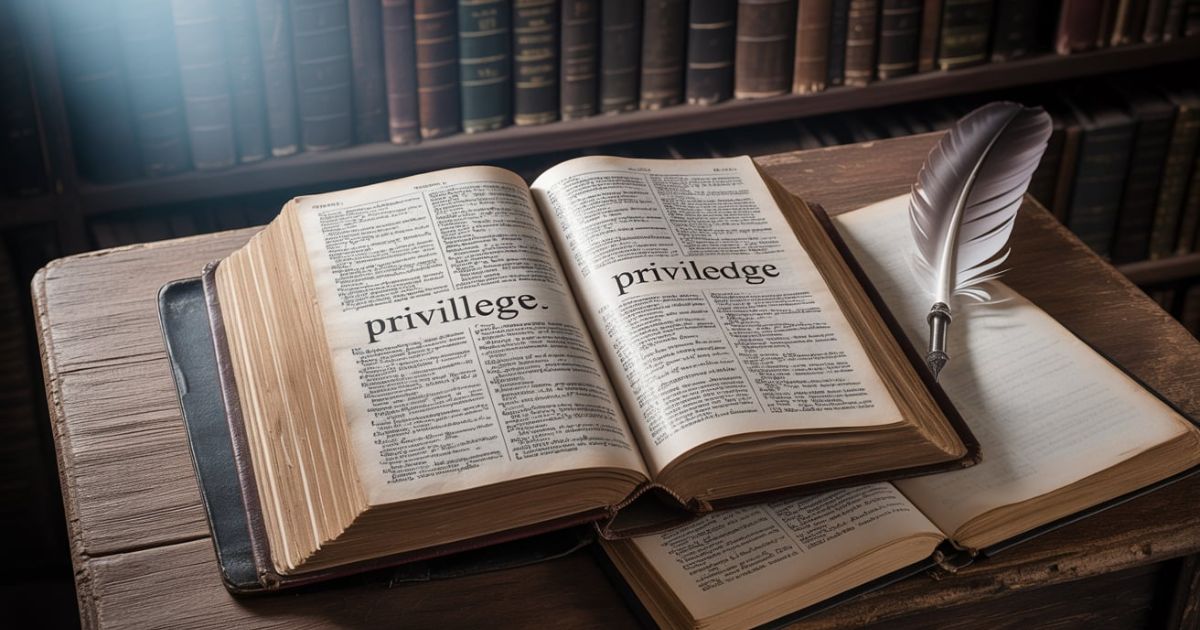The English language is full of words that seem tricky not because of their meaning, but because of their spelling. One such word that often causes confusion is the word privilege. Or is it priviledge? If you’ve ever paused in the middle of a sentence, unsure of how to spell it, you’re not alone.
So, let’s settle it once and for all: The correct spelling is “privilege.”
The word “priviledge” is a common misspelling and is not recognized as a correct word in standard English dictionaries.
But why is this spelling error so common? And how can we remember the correct form going forward? In this article, we’ll explore the correct usage, some real-life examples, and tips to help you avoid this frequent mistake.
What Does “Privilege” Mean?
Before we dive into spelling, let’s take a moment to understand what “privilege” means. It’s a noun that refers to a special right, advantage, or immunity granted or available only to a particular person or group.
For example:
- It was a privilege to meet the author after the event.
- Not everyone has the privilege of access to higher education.
- He grew up with many privileges that others didn’t have.
The word comes from Latin roots “privilegium”, meaning a law applying to one person. It evolved through Old French into Middle English, where we eventually arrived at the modern spelling: privilege.
Why Do People Spell It “Priviledge”?
This is one of those errors that’s easy to make, especially when we write quickly or rely on how a word sounds. When pronounced, privilege sounds like it contains an extra “e” sound in the middle, almost like “priv-uh-ledge.” This misheard vowel can trick people into writing “priviledge,” with an extra ‘d’ and ‘e’ in the middle.
Think about it:
- Correct: privilege
- Incorrect: priviledge
It’s a phonetic trap.
This mistake is so common that even professional writers and speakers sometimes slip up. But it’s important to remember that spell-check won’t always catch homophone-style errors, and over time, the wrong spelling can start to look “right” just from repeated exposure.
Examples of Common Mistakes
Let’s look at how this confusion might show up in real life. Here are a few incorrect and corrected sentences:
❌ Incorrect:
- It is a priviledge to work with such a dedicated team.
✅ Correct:
- It is a privilege to work with such a dedicated team.
❌ Incorrect:
- Many people take their priviledges for granted.
✅ Correct:
- Many people take their privileges for granted.
As you can see, the mistake can appear in both singular and plural forms.
Real-World Scenarios Where This Mistake Happens
1. Job Applications and Cover Letters
You’re applying for a role and want to express gratitude:
- “It would be a privilege to contribute to your company.”
Imagine if you spelled it wrong here. It could create the impression of carelessness or a lack of attention to detail.
2. Academic Writing
In an essay about social structures:
- “Those born into wealth often enjoy certain privileges others do not.”
Academic writing demands precision. A misspelling like priviledge might cost you points.
3. Social Media or Speeches
In a public post about awareness:
- “Check your privilege and be open to other perspectives.”
Misspelling it could distract from your message and reduce your credibility.
Tips to Remember the Correct Spelling
Here are a few tricks to help you stick with “privilege” and not fall into the “priviledge” trap:
Think of “leg” not “ledge”
The word ends with “-lege,” not “ledge.”
You have a leg to stand on when you spell it right.
Break it into parts
Try mentally breaking it into chunks:
pri-vi-lege.
Keeping syllables in mind can reduce the chance of adding unnecessary letters.
Use mnemonic devices
Here’s one:
People Rarely Insert Vowels In Legitimate English Grammar Errors.
Silly, but memorable!
Rely on repetition
Practice writing it correctly. Repetition helps lock the correct form into your memory. You could even type it out ten times to reinforce the correct spelling.
How Is It Used in Different Contexts?
The beauty of the word “privilege” is that it appears in various contexts. Let’s take a closer look at how it’s used across different areas:
Legal Context
- “Attorney-client privilege is protected under the law.”
This refers to a special right where communications between lawyers and clients are confidential.
Social and Political Context
- “White privilege refers to the societal advantages that white people have over non-white people in some societies.”
Here, the word points to unearned advantages given to a certain group.
Educational Context
- “It is a privilege to learn, not everyone has that chance.”
This usage highlights the value of education and the fact that it’s not universally available.
Words Similar to “Privilege” That Also Cause Confusion
English has no shortage of commonly misspelled words. Here are a few that often trip people up, just like “privilege”:
- Definite (not definate)
- Separate (not seperate)
- Occurred (not occured or occurrred)
- Embarrass (not embarass)
Just like with privilege, these words require extra attention, especially in professional or academic writing.
Final Thoughts
The English language is quirky, and misspellings are bound to happen even for native speakers. But some words are used so often that it’s worth taking the time to get them right.
So, to answer the original question once more:
✅ The correct spelling is “privilege.”
❌ “Priviledge” is always incorrect.
Whether you’re writing a formal email, crafting a resume, or simply posting online, spelling matters. And spelling “privilege” correctly is a small detail that can make a big difference in how your writing is received.


